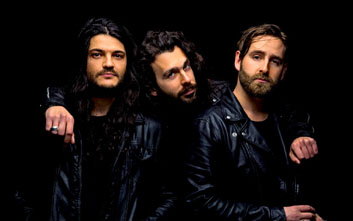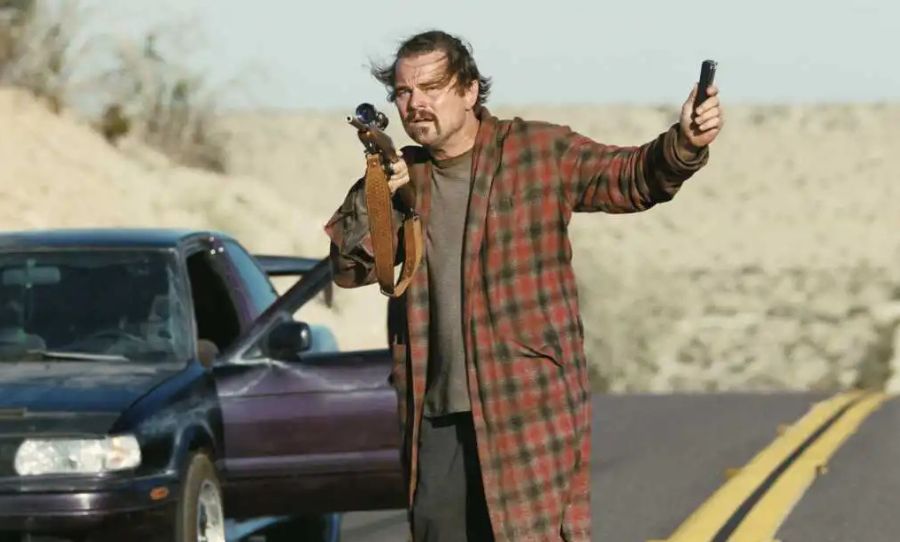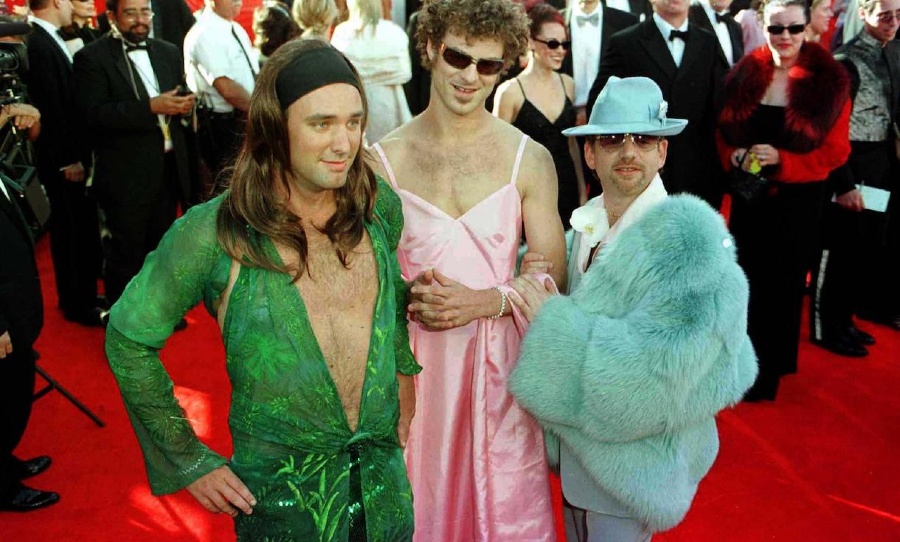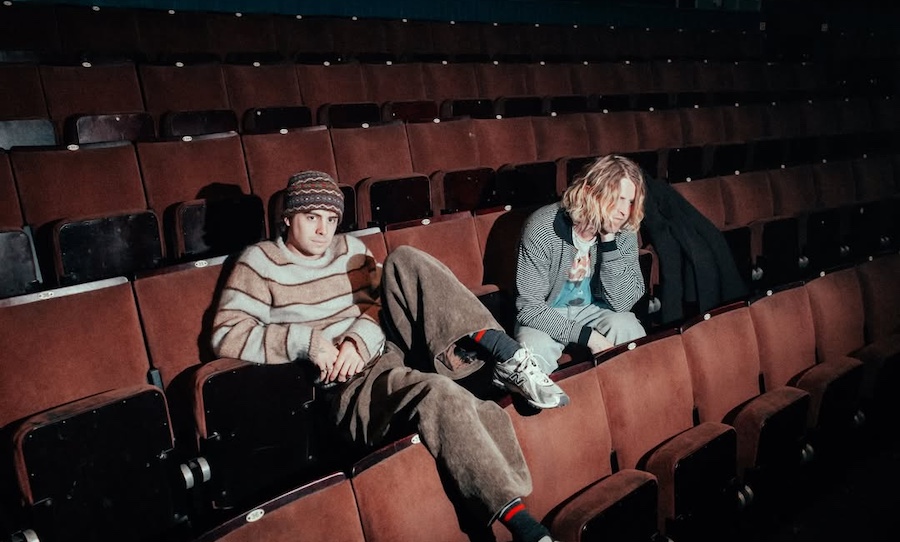Kingswood don’t need an introduction. If you don’t know who Kingswood are, you may have been living under a rock for the past couple of years. To date they’ve released two smashing albums that have firmly catapulted them into the position of one of Australia’s finest rock bands.
Fresh off a hectic touring schedule for their sophomore album After Hours, Close to Dawn and before a set at the Party in the Park this month, we caught up with guitarist Alex Laska to talk about everything from playing festivals, making it, and that “difficult” third album.
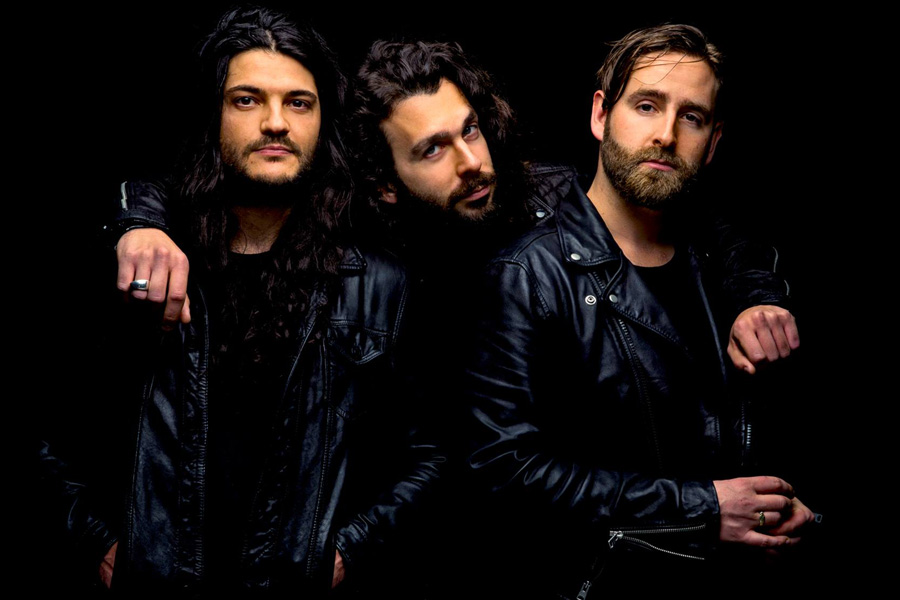
What does ‘making it’ even mean? Off the back of their biggest year to date, we take 5 with the unstoppable rockers of Kingswood.
HAPPY: You’re playing at the upcoming Party in the Park this month – do you change it up between playing a festival as opposed to your own headline show?
ALEX: Intrinsically you probably will, because you just approach it differently to your own show where you have more control, whereas a festival slot you’ve got your allocated slot, you go in, you do your thing and then you go out. You’re like a gun for hire then, so to speak. The main difference is more a psychological thing. Sometimes, depending on the atmosphere, the atmosphere can affect you a lot more. Actually no, it’s the… I mean look, let’s face it, you’re going out and playing your music, with your mates on stage and it’s unreal, so they’re both great in just different respects. The bigger the festival, you’re kind of more removed based purely on natural things like distance and height. But then again, you can sometimes have the best time because the vibe somehow spreads through the audience including the band and whatnot. It’s great.
HAPPY: If a lot of the audience aren’t familiar with you, do you actively try to win them over?
ALEX: Of course.
HAPPY: How do you go about that?
ALEX: We just try to be the best band in the world. It sounds stupid, but that is 100% our goal, to go out and be the best band in the world. And hopefully win people over. What’s the point in going out and being like “We’re gonna be shit and we don’t care if no one liked it”? That’s like going to the Olympics and being like “It’s cool if I come tenth”.
HAPPY: Is that the same as when you’re a support act? Because you supported lots of big names.
ALEX: 100%. When we were doing a lot more supports, we would go out and try and beat the main band. Go out and win and be like “Woah, they stole the show”. And I would expect any support band that opens for us to feel the same, and they should.
HAPPY: Do you think you ever did beat the main act?
ALEX: Yeah, heaps of time (laughs). I don’t know if that’s the case but definitely in my mind.
HAPPY: Between your own shows and a festival, is there one you prefer?
ALEX: Nope. Obviously your own shows make you very proud, particularly if you’re doing a Forum, you know. But the actual mechanism or the activity is kind of the same thing. You’re stood there with your best mates, making music that you came up with in your head in your bedroom, and you get to do that as your job and it’s the best thing in the world. So whether it’s in front of your own people or people that don’t know you, effectively the same action is taking place, it’s just the perception of it is a bit different because people, if they know it, may appreciate it more. And if you have control over your performances like your own headline shows, it allows your creativity to expand to the lighting show or the themes or whatever it is. It allows you to present your idea of your performance in the best way.
HAPPY: When you play the same songs over and over at your shows, how do you keep it sounding fresh?
ALEX: Well we have a huge improvisational component to all our songs, so that is always going to be different. Sometimes you kind of react with the band or the crowd or with something that’s happening at the time that allows you to change things on a whim. Sometimes I’ll extend a jam for like five minutes just because it feels like the right thing to do, and sometimes it might be the wrong thing to do. And then a huge component of it is that it’s a new venue, it’s a new crowd, it’s a new night, the temperature’s different, you’re feeling different, you’re wearing different clothes, your instruments are responding differently. The material’s the same, but it’s never really the same, is it? You’re playing somethings slightly different every time. And all of those factors lead to it feeling very different. Every show you do feels very different.
HAPPY: You released your second album last year, and it’s normally around this time Aussie bands start aiming for America – do you guys have any intention to take on the States?
ALEX: We’ve always tried to take it to the States but we also want to take it to Europe. We’ve actually never ever attempted Europe.
HAPPY: Is there a difference between attempting Europe and attempting America?
ALEX: I don’t know enough about it to be honest, but what I do know is that you can have a focused scene in Europe, whereas in the States purely because it’s so big, virality plays such a bigger part in the States than it does in Europe. In Europe it seems like you can cultivate a scene and let that spread whereas in America it’s a lot harder to do so. And they thrive on data and socials and all that sort of thing, which for us it tricky because we’re not that kind of band. We’re not a band that’s going to put out a song that’s going to explode on Spotify. If you look at hip-hop and R&B and modern stuff like that, it has a potential to do that because they sort of exist in that world, whereas for traditional bands it can happen but it’s not as frequent.
HAPPY: Do you think that makes it harder being in a guitar rock band nowadays than when you started out?
ALEX: Nah. Not really. It’s all the same. When we started out there were way more rock bands meaning your competition is extremely fierce and the density of people doing it is huge, whereas now the interest has shifted. You know, it doesn’t really matter what kind of music you’re doing. It’s just hard anyway. Everyone wants to be a musician nowadays.
HAPPY: Do you agree with the idea that you haven’t made it until you make it in America?
ALEX: Well this is a funny question because you have to define what success it to you. If you want to talk about, “do I think my band is successful?” then 100% because we’ve ticked off everything we’ve ever wanted to do. But the only thing is, as you grow, the scale of what you want to do grows. My definition of success is if you set out something to achieve and you achieve it, you’re successful. Initially, we wanted to play a show. We did that. Then we wanted to play a bigger show, so we did that. And then we were like “we want to tour Australia”, so then we did that. And then, “we want to release a record”, and we did that. “We want to get a song on the radio”, and we did that. “We want to get a booking agent”, we did that. “We want to tour internationally”, we did that. “We want to record internationally”, we did that. “We want to get a song in the Hottest 100”, we did that. “We want to play a festival”, we did that. “We want to play a headline show in Melbourne at this dream venue I had, the Forum”, we did that.
So by everything I’ve just given you, we’re unbelievably successful. But if I go “my dream is to have a top 10 hit in the States”, then we’ve failed miserably. It’s all relative to what your definition is, so making it is something that varies for different people. Do I think we’ve made it? No. Do I think we’ll ever make it? It depends on what I think making it is. If I think making it is buying a house out of being a musician, probably. Hopefully. That’s kind of not what it is anyway. I don’t even know what making it is to me. To me, we haven’t made it yet. And probably to me, we might not ever, because my scales keep growing.
HAPPY: What’s next? What’s left to tick off your list?
ALEX: A lot more international stuff. To be able to do the same sort of thing we do in Australia in Europe and America, which is a gargantuan task. Like, touring the States and comfortably sell out rooms all over the States and Europe, that’s massive. Bands, to their credit, like King Gizzard are doing that sort of thing now and it’s huge. They’ve been working and working and working at it. It’s a lot of work. But it’s what we want to do, so we’ll just try it. See what happens. What else can you do?
HAPPY: Your Like A version of Say My Name is one of my favourite ever – I’ve always wondered what the process is like when you do a Like A Version. How do you pick the one song?
ALEX: Well that is one of the most difficult things that happened in the process, because you’ll think of a song and Google it and you’ll realise someone did it in 1998. Anyway, we all obviously love that song and love R&B from the ’90s and stuff because we kind of grew up with it. I kind of pick songs that I can hear arrangements around immediately. If I’m immediately inspired, it musically makes my job very easy. So I could hear all this stuff and I’d heard a few others and because I can hear it easily and it was available and we love the song, it became very obvious very quickly. It’s just about how much the song inspires your imagination, if that makes sense.
HAPPY: When can we expect another Kingswood album?
ALEX: This year, for sure. We’ll definitely have a new single in the next few months for release, so that’ll be stage one.
HAPPY: What’s the approach like going into your third album? Because everyone says there’s a big thing about third albums.
ALEX: The funny thing is that all always applied. There’s a big thing about your first album, then there’s a massive thing about your sophomore, and then the third album could be the make or break. We just put out music that we’re proud of and are inspired by and inspired to make. The rest you just leave up to destiny and serendipity.
Catch Kingswood live:
March 17 – Global Beats & Eats 2018 – Paloma Park, Marangaroo WA
March 24 – Party In The Park – Big Top, Sydney NSW – Tickets
April 13 – Club 54, Launceston TAS
June 9 – Sea N Sound – The Wharf Tavern, Mooloolaba QLD
